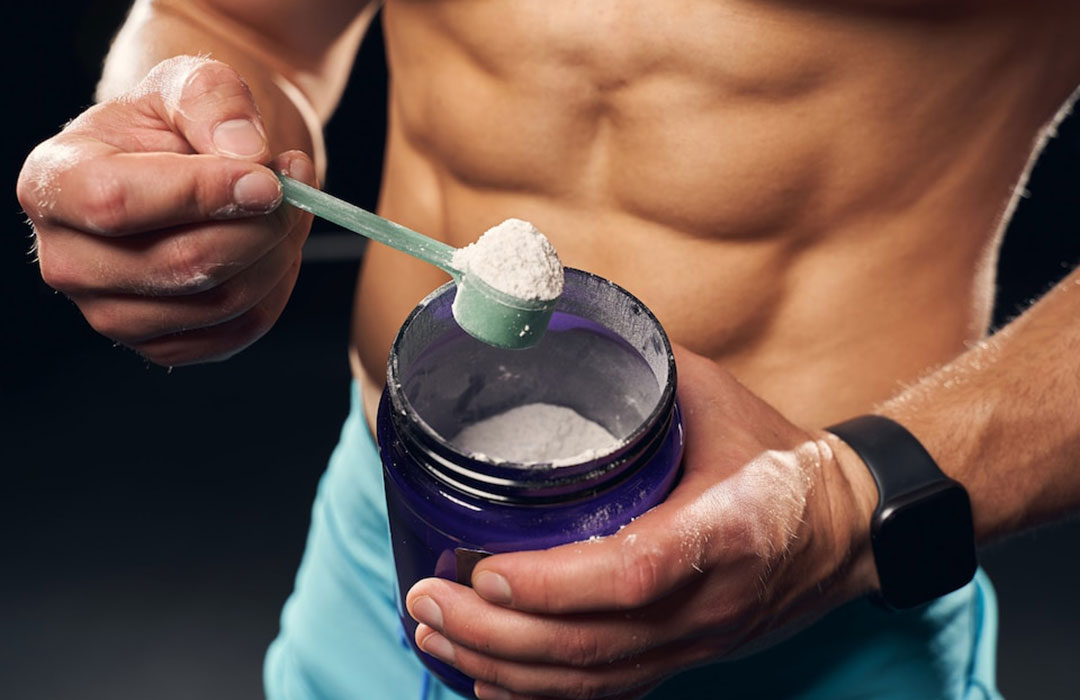Introduction
Can you freeze protein powder? This is a common question among fitness enthusiasts and individuals who use protein powder as a dietary supplement. Freezing protein powder can be a convenient way to extend its shelf life or prepare for future use. In this comprehensive guide, we will explore the topic of freezing protein powder in detail, addressing various aspects and providing valuable insights. So, if you’re curious whether freezing protein powder is viable, keep reading!
Freezing Protein Powder: The Basics
Freezing protein powder is possible, but a few essential considerations must be remembered. Protein powders typically contain various ingredients, including proteins, sweeteners, and flavorings. While freezing generally doesn’t harm the nutritional value of protein powder, it can affect its texture and consistency. As a result, it’s crucial to understand the potential effects of freezing and how to mitigate them for optimal results.
Can You Freeze Protein Powder Safely?
Yes, you can freeze protein powder safely, but following proper guidelines is essential to maintain its quality. Here are some critical steps to freezing protein powder safely:
1. Check the Expiration Date
Before freezing protein powder, check the expiration date to ensure it is within the recommended timeframe. Freezing protein powder that has already expired may lead to poor taste and diminished nutritional value.
2. Transfer to an Airtight Container
To preserve the quality of protein powder during freezing, transfer it to an airtight container. Exposure to air and moisture can cause the powder to clump or develop off-flavors. A container that seals tightly will prevent these issues and help maintain the powder’s integrity.
3. Divide into Individual Servings
Dividing the protein powder into individual servings before freezing can be convenient. This allows you to thaw only the needed amount without repeatedly exposing the entire batch to temperature fluctuations. Use small freezer-safe bags or containers to portion out the protein powder.
4. Label and Date the Containers
To keep track of the frozen protein powder, label each container with the product name and the date it was frozen. This practice will ensure you use the oldest batches first, properly rotating and avoiding waste.
5. Place in the Freezer
Finally, place the airtight containers with the protein powder in the freezer. Ensure the freezer temperature is below 0°F (-18°C) for optimal storage conditions. This will prevent the growth of microorganisms and maintain the quality of the protein powder.
The Effects of Freezing on Protein Powder
Now that we’ve established that freezing protein powder is safe let’s explore its effects on the powder’s properties.
1. Texture and Consistency
Freezing protein powder can lead to changes in its texture and consistency. The powder may become clumpy or develop a gritty texture. While this alteration doesn’t necessarily affect the nutritional value, it can impact the overall taste and mouthfeel of protein shakes or other preparations.
2. Mixing and Dissolution
Another effect of freezing is that protein powder may become more challenging to mix and dissolve. The clumping due to freezing can make it harder to achieve a smooth consistency. However, there are ways to mitigate this issue, as we will discuss later in the article.
3. Flavor Stability
Flavor stability can be affected by freezing as well. Some protein powders may experience changes in taste or develop off-flavors after being frozen. This can be attributed to the interaction between the ingredients and the freezing process. However, not all protein powders are equally prone to flavor alterations so individual experiences may vary.
Tips for Freezing Protein Powder
To minimize the potential adverse effects of freezing protein powder, here are some helpful tips:
1. Choose the Right Protein Powder
Opt for protein powders that are less likely to be affected by freezing. For example, some brands formulate their products to improve texture and flavor stability after freezing. Check product labels or research for a protein powder that suits your needs.
2. Use a Blender Bottle or Shaker Cup
A blender bottle or shaker cup can achieve a smoother consistency when preparing protein shakes with frozen protein powder. The mixing mechanism in these containers helps break up clumps and facilitates better dissolution.
3. Thaw and Mix Properly
To thaw frozen protein powder, transfer the desired portion to a bowl or cup and let it sit at room temperature for a few minutes. Once partially thawed, use a spoon or fork to break up any clumps. Afterward, add liquid (such as water, milk, or a smoothie base) gradually while stirring continuously until the powder is fully dissolved.
4. Experiment with Flavors and Ingredients
If you find that the flavor of your protein powder has been affected by freezing, you can experiment with different ingredients to enhance the taste. Adding fruits, flavored extracts, or natural sweeteners can help mask any off-flavors and make your protein shakes more enjoyable.
5. Store in a Cool, Dry Place
After thawing and using the frozen protein powder, store any remaining powder in a cool, dry place away from direct sunlight. Avoid exposing the powder to heat or moisture, as these conditions can accelerate degradation.
FAQs (Frequently Asked Questions)
-
Can I Freeze Protein Powder In Its Original Packaging?
Yes, you can freeze protein powder in its original packaging. However, transferring the powder to an airtight container is generally recommended to prevent moisture absorption and maintain freshness.
-
How Long Can I Freeze Protein Powder?
Properly stored, protein powder can be frozen for several months without significant quality loss. However, consuming it within 6 to 12 months is best for optimal taste and nutritional value.
-
Can Freezing Affect The Protein Content Of The Powder?
Freezing protein powder does not significantly impact its protein content. The freezing process primarily affects the powder’s texture, consistency, and taste.
-
Can I Freeze Protein Shakes Or Smoothies Made With Protein Powder?
Yes, you can freeze protein shakes or smoothies made with protein powder. Pour the prepared shake into a freezer-safe container and place it in the freezer. Thaw it in the refrigerator or at room temperature before consuming.
-
Can I Freeze Protein Powder Mixed With Liquid?
It’s not recommended to freeze protein powder mixed with liquid. The liquid may expand during freezing, creating a messy and potentially wasteful situation. It’s best to freeze protein powder and liquid separately, combining them when you’re ready to consume the prepared shake or smoothie.
-
Can Freezing Protein Powder Cause It To Spoil?
Freezing protein powder does not cause it to spoil. However, if the powder was already close to its expiration date or improperly stored before freezing, its quality may deteriorate faster.
Conclusion
In conclusion, freezing protein powder is a viable option for extending its shelf life and ensuring its availability when needed. Following the proper guidelines, you can safely freeze protein powder without significantly losing nutritional value. Although freezing may alter protein powder’s texture, consistency, and flavor stability, these effects can be minimized through proper thawing and preparation techniques. Remember to choose protein powders specifically formulated for freezing, use appropriate containers, and experiment with flavors to enhance your protein shakes. Enjoy freezing protein powder’s convenience and flexibility, and make the most of your dietary supplement.
Reference: Freeze Drying




